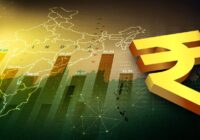Data is not neutral. It is a source of meaning. Controlling the meaning and the means to create more meaning is the secret of wealth and power.
In a blog post, Alfie Kohn, a prominent educational thinker and enemy of recent bureaucratic reforms, offers the following “rule of thumb” to apply to professionals in the field of education: “An individual’s enthusiasm about the employment of ‘data’ in education is directly proportional to his or her distance from actual students.”
Here is today’s double 3D definition:
Data:
Everything that has first been named and selected by technocrats before being ruthlessly catalogued, categorized, tagged, pigeonholed and otherwise separated from all living things
Big Data:
Massive miscellaneous data that has been gathered and rolled into semantic balls of various dimensions for the sporting pleasure of technocrats
Contextual note
Kohn cites Christian Rudder who describes the problem of big data as being “the calculated decision to stop being human” by those who create and manage the data. Rudder claims that big data is neutral, since it is simply information people can work with any way they want. But that’s no more than an artful dodge, as Kohn infers.
The question we need to ask is this: Why would those who control big data make the “decision to stop being human”? Because that is exactly what is happening in the institutions that use it for profit. And the simple answer may be that the economic system the data serves prefers data to anything that’s human. Humans are costly and unreliable. They take vacations and complain about work conditions. Human teachers are no exception and, therefore, policymakers and administrators are easily tempted to shift more and more decision-making and teaching responsibility to data and, as it emerges, artificial intelligence.
It makes sense from a business point of view. No doubt both Arne Duncan, Barack Obama’s head of education, and Betsy DeVos, Donald Trump’s current education secretary, would agree. But should questions about education always be approached from a business point of view? Should anything that involves human relations be subjected to pure business logic? Now that the ideology of neoliberalism has become every “responsible” decision-maker’s ethical standard, they would all answer: yes.
“Predictive analytics allows administrators to believe they’re keeping a watchful eye on their charges when in fact they’re learning nothing about each student’s experience of college, his or her needs, fears, hopes, beliefs, and state of mind,” Kohn says. The trend has existed for a long time, long before any digital data could be collected and analyzed. The system of analysis itself contains an essential item: willful neglect of the social dimension of learning. A “student’s experience” consists of relationships: with teachers, other learners, friends outside the context of school and “role models” in the community (and increasingly in the media).
Historical note
Tim Berners-Lee gave us the World Wide Web nearly 30 years ago. He literally offered it to the world, bucking the trend to exploit technology as a proprietary monopoly to accumulate wealth and power. Today, he complains about how major corporate interests, the big tech companies, have taken over and literally monopolized his open, democratic invention. He warns: “These online gatekeepers can lock in their power by acquiring smaller rivals, buying up new innovations and hiring the industry’s top talent, making it harder for others to compete.”
 They create and own mountains of data, including everything that is useful for them to know about their customers, meaning the rest of the world. And they monetize it, which may seem normal, but in so doing they create a class they themselves belong to: those who have the power to manipulate uncounted numbers of people through access to whatever meaning they attribute to the data. Data is not neutral. It is a source of meaning. Controlling the meaning and the means to create more meaning is the secret of wealth and power.
They create and own mountains of data, including everything that is useful for them to know about their customers, meaning the rest of the world. And they monetize it, which may seem normal, but in so doing they create a class they themselves belong to: those who have the power to manipulate uncounted numbers of people through access to whatever meaning they attribute to the data. Data is not neutral. It is a source of meaning. Controlling the meaning and the means to create more meaning is the secret of wealth and power.
Berners-Lee has called for regulation. But is that realistic? The entire economic system and the reflexes of all its actors — from the senior managers, strategists and accountants to the shareholders, politicians and consumers — are programmed to seek the conditions for maximum profit.
Shouldn’t we be thinking about radically fixing the system rather than attempting to regulate what we call its excesses, but which are in reality its working principles?
*[In the age of Oscar Wilde and Mark Twain, another American wit, the journalist Ambrose Bierce, produced a series of satirical definitions of commonly used terms, throwing light on their hidden meanings in real discourse. Bierce eventually collected and published them as a book, The Devil’s Dictionary, in 1911. We have shamelessly appropriated his title in the interest of continuing his wholesome pedagogical effort to enlighten generations of readers of the news.]
The views expressed in this article are the author’s own and do not necessarily reflect Fair Observer’s editorial policy.
Photo Credit: LIPING / Shutterstock.com
Support Fair Observer
We rely on your support for our independence, diversity and quality.
For more than 10 years, Fair Observer has been free, fair and independent. No billionaire owns us, no advertisers control us. We are a reader-supported nonprofit. Unlike many other publications, we keep our content free for readers regardless of where they live or whether they can afford to pay. We have no paywalls and no ads.
In the post-truth era of fake news, echo chambers and filter bubbles, we publish a plurality of perspectives from around the world. Anyone can publish with us, but everyone goes through a rigorous editorial process. So, you get fact-checked, well-reasoned content instead of noise.
We publish 2,500+ voices from 90+ countries. We also conduct education and training programs
on subjects ranging from digital media and journalism to writing and critical thinking. This
doesn’t come cheap. Servers, editors, trainers and web developers cost
money.
Please consider supporting us on a regular basis as a recurring donor or a
sustaining member.
Will you support FO’s journalism?
We rely on your support for our independence, diversity and quality.






